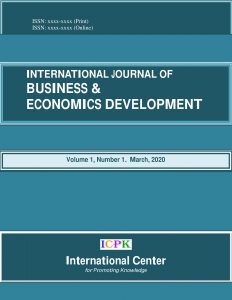America’s Business Community Leads Pandemic Response and Preparedness: COVID-19 recovery, resilience to economic fall-out and support for Community Collaborative model to prevent the next public health crisis
Bill Oldham, Shawn Murphy
Abstract Preview
Despite its devastating impact on populations and businesses worldwide, COVID-19 is providing an opportunity to reassess, discover and strengthen the fabric of communities and states across the country in order to mitigate the brunt of future health crises. While we are “all in this together,” there is a need to take action and set the agenda for addressing the factors that affect the strength and resilience of individuals, businesses, policy makers and communities. Now is the time to galvanize business and healthcare leaders nationwide to not only react to the current and ongoing coronavirus challenge, but to also prepare for future health crises that have the power to cripple our economic climate, further impact racial disparities and access to care, and impose restrictions on our entire healthcare system. By working together through community collaboratives and taking action now, this tragic pandemic serves as a learning experience to move forward toward repair and effect positive change.
Innovations in Financial Technology: Global Accelerators and Fintech Startups
David Bartlett, Tomasz Mroczkowski
Abstract Preview
This article examines the role of global business accelerators in the launch of startup companies in financial technology. Using a database comprising 500 + companies worldwide, we conduct a comparative analysis of the funding of fintech companies that participated in global accelerators versus non-accelerated startups. Supplementing our empirical study of fintech startup funding, we report the results of interviews of fintech entrepreneurs who graduated from leading accelerators. Our investigation reveals a large gap in funding of accelerated and nonaccelerated fintech startups, with the latter group receiving eight times the amount of early stage financing (seed capital + Series A/B/C venture capital) as the accelerated group. Situated at the intersection of scholarly research on fintech and global accelerators, the article illuminates the contributions of business accelerators to fintech startups and the dynamics of startup funding in industry segments with differing financial and technological demands.
An Amalgamated Potential Model to Fulfil Employees’ Psychological Needs and Develop Inner Resources
Evelina Savickaite-Kazlauske MA
Abstract Preview
This article presents theoretical considerations applying a possible merger instrument from Appreciative Inquiry and Integrated Cognitive Behavioural Coaching model informed practices within the organisational context. Empirical research suggests, separate measures and concepts may already present some promising results, and this amalgamated model applied to organisational context may potentially assist in increasing positive psychological capital resources and satisfying basic psychological needs to deliver even a more profound effect. It is a working paper towards a practical application and scientific research within a broader organisational context.
The Correlation Between A Code of Ethics and Sales Behavior
JoEllen Jonsson, Dr. Alexander Lawrence
Abstract Preview
The relationship between a salesperson’s ethical selling behavior and a business’s ethical code, training, and culture have been studied periodically. This study seeks to investigate the question, does having a code of ethics positively influence the behavior of salespeople? After surveying a sample of sales professionals from a variety of industries, results showed a relationship between a salesperson who is directed by a code of ethics and his/her belief that he is an ethical person. However, 48% said yes, their code of ethics impacted their decision-making process. This study suggests that a code of ethics can provide an employee benchmark to help them identify the type of intrinsic values and extrinsic actions an ethical person should have in the workplace. Surprisingly, our findings indicate that salespeople who have a company culture that includes virtue, ethics and effective communication from management show no association to the ethical behavior of sales representatives.
